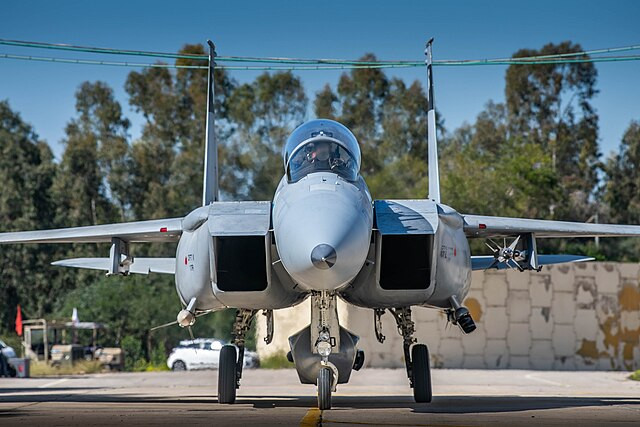Israel conducted its heaviest air and artillery strikes on southern Lebanon in four months on Saturday, retaliating after cross-border rocket fire threatened to unravel a fragile ceasefire with Hezbollah. The flare-up came as thousands of Israelis protested against Prime Minister Benjamin Netanyahu's government, urging a halt to ongoing military operations in Gaza and Lebanon.
The Israeli military reported intercepting three rockets launched from Lebanon, marking the first such attack in more than three months. In response, Israeli jets and artillery struck dozens of targets across southern Lebanon, with Lebanon's health ministry confirming two fatalities, including a child, and at least eight injuries.
Israeli Defense Minister Israel Katz warned of a harsh response, stating, "Metula and Beirut will be treated the same. The Lebanese government is fully responsible for any fire originating from its territory." Katz added that Israel's military campaign will expand unless cross-border attacks cease.
Hezbollah denied involvement in the rocket attack and reaffirmed its commitment to the ceasefire agreement. "Israeli claims that it was behind the strikes are merely a pretext for continued attacks on Lebanon," the group said in a statement.
Lebanon's defense ministry indicated it was investigating the origin of the rocket fire, with Defense Minister Michel Menassa emphasizing diplomatic and military efforts to safeguard Lebanon's sovereignty. The Lebanese army later reported dismantling three "primitive rocket launchers" near the border.
The United Nations peacekeeping force in Lebanon (UNIFIL) expressed concern over the escalation, stating, "The situation remains extremely fragile and we encourage both sides to uphold their commitments." UNIFIL warned that further hostilities could risk collapsing the November ceasefire, which ended over a year of conflict that left nearly 4,000 dead and displaced 1 million people in Lebanon.
Saturday's escalation also coincided with mass demonstrations across Tel Aviv and Jerusalem, where Israeli citizens blocked major highways to protest Netanyahu's leadership. Many demonstrators cited the government's recent dismissal attempt of Ronen Bar, head of Israel's internal security agency, and the resumption of military strikes in Gaza as key grievances.
A letter signed by 40 recently freed Hamas hostages and 250 relatives of remaining captives urged Netanyahu to prioritize hostage negotiations over renewed military action. "This letter was written in blood and tears," the group stated. "Stop the fighting. Return to the negotiating table and fully complete an agreement that will return all of the hostages, even at the cost of ending the war."
Since January, a three-phase ceasefire plan had been in place, intended to secure the release of all hostages and halt Israel's military offensive in Gaza. However, talks on the plan's second phase stalled after Israel resumed its operations, killing more than 500 people in Gaza over the past week, according to local authorities.
Israel's defense minister on Friday signaled a further escalation, declaring, "I ordered [the army] to seize more territory in Gaza. The more Hamas refuses to free the hostages, the more territory it will lose, which will be annexed by Israel."
Meanwhile, Lebanese Prime Minister Nawaf Salam cautioned that renewed fighting in southern Lebanon risked plunging the country back into full-scale conflict. Salam urged Lebanon's defense ministry to ensure state authority determines decisions of war, rather than Hezbollah.
The Israeli strikes in Lebanon come amid Netanyahu's ongoing battle with Israel's judiciary. The country's supreme court recently blocked his attempt to fire Shin Bet chief Ronen Bar, who has reportedly been investigating Netanyahu's inner circle over security breaches and alleged financial ties to Qatar.




